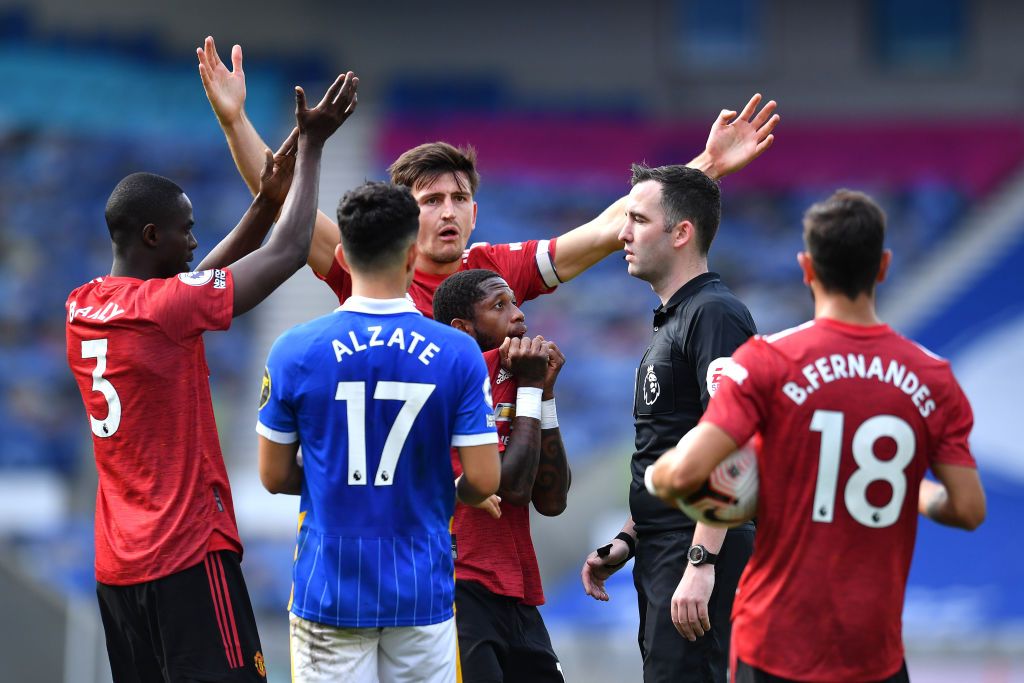The ending of Brighton vs Manchester United in 2020 is surely the craziest in Premier League history.
United became synonymous with scoring injury-time winners under Sir Alex Ferguson - so much so that it was dubbed 'Fergie Time.'
But under Ole Gunnar Solskajer at Brighton in September 2020, the Red Devils scored a winner AFTER the final whistle.
Incredible.
Even before injury-time at the Amex Stadium, it was a quite remarkable match.
Brighton dominated proceedings and took the lead in the 40th minute thanks to Neal Maupay's cheeky Panenka penalty.
But within 180 seconds, Man United had equalised. Lewis Dunk turned the ball into his own net after good work from Nemanja Matic, who kept a Fernandes cross alive.
The second half was dominated by VAR.
The hosts thought they had been given a second penalty when Paul Pogba was judged to have fouled Aaron Connolly inside the box.
But VAR took a second look and overturned the decision. Minutes later, Marcus Rashford went up the other end to score, making it 2-1 to United.
An incredible injury-time between Brighton vs Man Utd
After huffing and puffing, Brighton appeared to finally get their rewards when Solly March equalised with a header in the 95th minute.
But even more drama was to follow.
United went up the other end and earned a corner.
From that corner, Harry Maguire's header deflected off Maupay's arm before being cleared off the line by March. After being cleared, referee Chris Kavanagh blew the final whistle.
However, United players claimed for a penalty for handball off Maupay despite full time being signalled.
With VAR in action, Kavanagh was advised to go over to the monitor where he decided that Maupay had handled the ball and awarded a penalty to United.
Bruno Fernandes stepped up and made no mistake with the final kick of the game.
Remarkable.
Imagine if there were fans inside the stadium to witness the madness.
Why were Man Utd allowed to take a penalty after the final whistle?
But was Kavanagh right in awarding a penalty after blowing the final whistle?
Yes.
Games are allowed to be restarted following a VAR check, despite the referee having already blown his whistle to signal the end of the game. However, Kavanagh would have been better to stop play with one blow of the whistle before his review, rather than actually blowing for full time.
According to the International Football Association Board (IFAB), there are no time restrictions for reviewing incidents.
"There is no time limit for the review process as accuracy is more important than speed," the IFAB states.
"The referee and other match officials must always make an initial decision (including any disciplinary action) as if there was no VAR (except for a ‘missed’ incident).
"The review process should be completed as efficiently as possible, but the accuracy of the final decision is more important than speed. For this reason, and because some situations are complex with several reviewable decisions/ incidents, there is no maximum time limit for the review process.
"The referee will then take/change/rescind any disciplinary action (where appropriate) and restart play in accordance with the Laws of the Game."
It's something we hadn't seen before in the Premier League and something we haven't seen since.




















